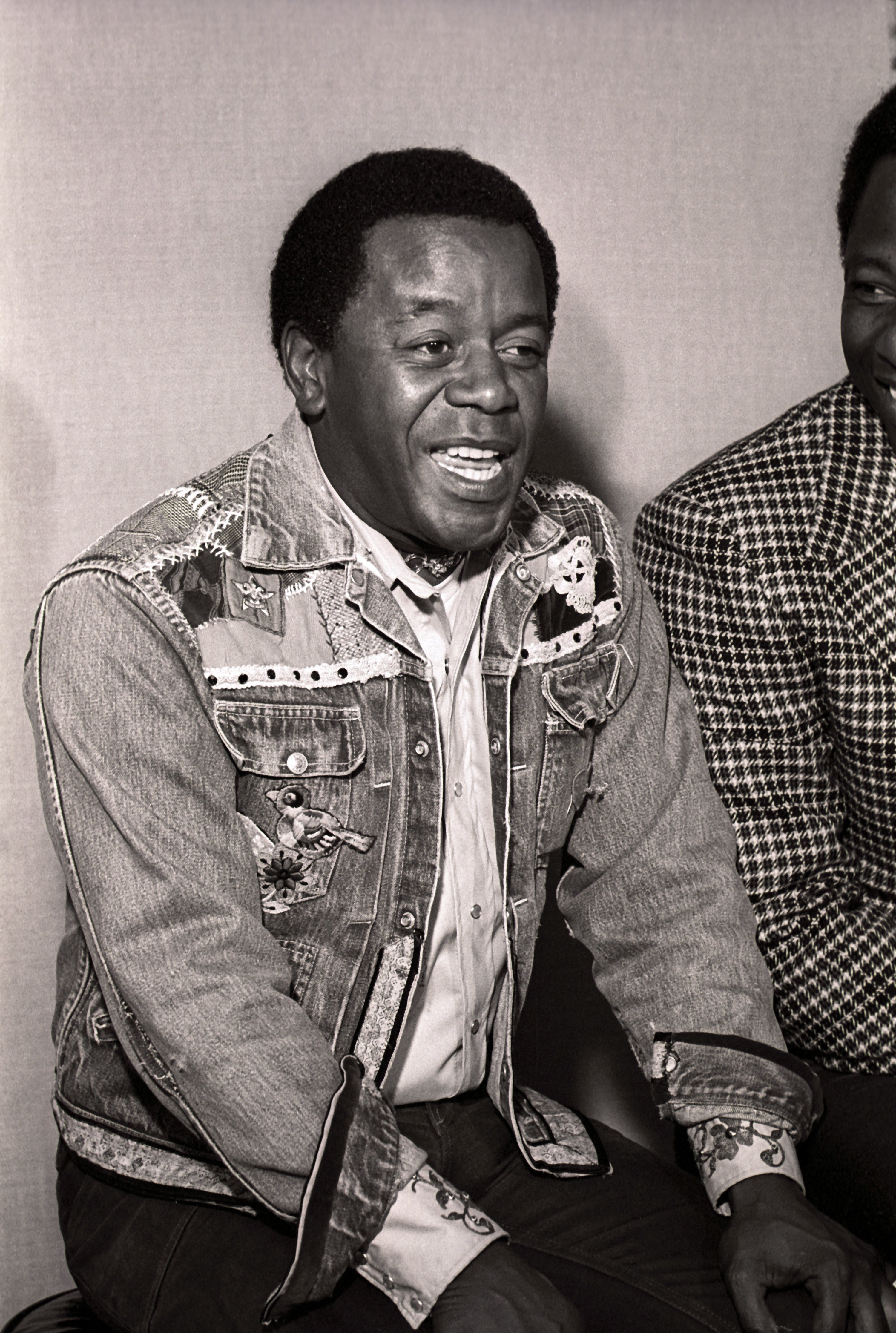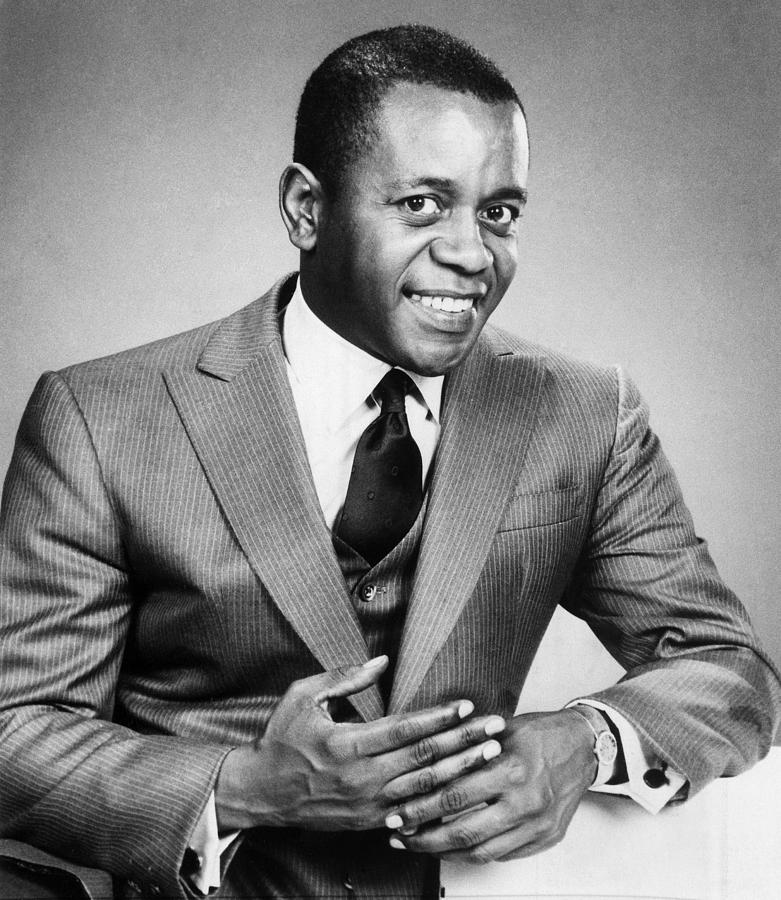Flip Wilson's Legacy: From Foster Homes To TV Icon
Could a single individual truly redefine the landscape of American television? The answer is a resounding yes, and the name etched in history as the vanguard of this revolution is Clerow "Flip" Wilson. His journey from the streets of Jersey City to the pinnacle of comedic stardom is a testament to both unparalleled talent and groundbreaking perseverance.
The story of Flip Wilson is a tapestry woven with threads of humor, hardship, and historic achievement. It's a story that transcends mere entertainment, becoming a significant cultural milestone that continues to resonate through the decades. Wilson wasn't just a comedian; he was a pioneer who shattered barriers, captivated audiences, and paved the way for generations of African American entertainers to follow. His impact on American television and comedy remains undeniable, ensuring his place as an icon.
| Category | Details |
|---|---|
| Full Name | Clerow Wilson Jr. |
| Born | December 8, 1933, in Jersey City, New Jersey, USA |
| Died | November 25, 1998, in Malibu, California, USA (Liver Cancer) |
| Nicknames | Flip (gained during his time in the Air Force) |
| Nationality | American |
| Occupation | Comedian, Actor, Writer |
| Known For | Host of The Flip Wilson Show; recurring character Geraldine |
| Parents | Clerow Wilson Sr. (Father), Abandoned by Mother in 1940 |
| Marriages | Cookie Mackenzie, Lovenia Patricia (Peaches) Wilson |
| Children | Information unavailable publicly |
| Education | Left school at 16 |
| Military Service | United States Air Force (four years) |
| Notable Achievements |
|
| Filmography (Selected) |
|
| Reference Website | IMDB - Flip Wilson |
Born Clerow Wilson Jr. on December 8, 1933, in Jersey City, New Jersey, Flip's early life was marked by challenges. Abandoned by his mother in 1940, he and his siblings were placed in foster homes. These formative years, unfortunately, were not conducive to stability; young Clerow often ran away, leading to stints in reform school. However, within these difficult circumstances, a certain resilience began to take root, a characteristic that would later define his remarkable career.
- Chance The Rapper Net Worth 2024 Beyond Income Sources More
- Relaxium Lithium Xanax Can They Be Taken Together
Wilson's path to fame wasn't a direct one. He spent four years in the United States Air Force, during which time he earned the nickname "Flip." Following his military service, he honed his comedic skills in clubs, recording two albums, Flippin' (1961) and Flip Wilson's Pot Luck (1964). During this era, he also made regular appearances at the legendary Apollo Theater, where he further refined his stage presence and built a loyal following. The stage became his training ground, where he crafted the unique comedic persona that would soon captivate the nation.
The genesis of his mainstream success can be traced to his appearances on The Ed Sullivan Show. His wit and charm resonated with audiences, and he even received the "Comedian of the Year" award from Ed Sullivan in 1970. Wilson's brand of humor, often self-deprecating and observational, but always delivered with impeccable timing and genuine warmth, was a refreshing change of pace in a comedic landscape often dominated by more abrasive styles.
This early exposure paved the way for his own variety show, The Flip Wilson Show, which premiered in 1970. This groundbreaking program, which ran for four seasons, became an immediate hit. It wasn't just successful; it was revolutionary. The Flip Wilson Show was one of the first American television programs starring a Black person in the title role to become highly successful with a white audience. The show showcased skits, music, and appearances by a "who's who" of film and television stars, including Richard Pryor, Lily Tomlin, George Carlin, Don Rickles, and Tim Conway. The show won two Emmy Awards: one for Outstanding Variety Series and another for Outstanding Writing Achievement. Wilson also took home a Golden Globe Award for his efforts.
- T Boz Net Worth 2024 How Did She Build Her Wealth
- Billy Mays Death Cause Untold Facts Rip The Pitchman
The show's impact went beyond entertainment. Wilson's success opened doors for other Black entertainers in the industry, proving that diverse talent could draw massive audiences. His character, Geraldine Jones, a sassy, quick-witted woman who often found herself in hilarious situations, became an instant sensation. As Wilson himself said, Geraldine "carried me longer than my mother did." Through Geraldine and other recurring characters like the Rev. Leroy, Wilson fearlessly explored themes of race, identity, and social commentary, all while keeping audiences in stitches.
Wilson's comedic genius lay in his ability to find humor in everyday life. His style was accessible and relatable, regardless of race or background. He didn't rely on negativity or shock value; instead, he used observational humor, physical comedy, and a knack for storytelling to connect with his audience. His catchphrases, such as "The devil made me do it!", became cultural touchstones, echoing through American homes.
The success of The Flip Wilson Show wasn't just a personal triumph; it was a societal breakthrough. It showed that Black entertainers could be successful in the mainstream and challenged long-held stereotypes about who could be a star. He was a trailblazer, a comedian who fearlessly broke down racial barriers at a time when such things were, unfortunately, not common.
His contributions extended beyond his own show. Wilson appeared eleven times on The Ed Sullivan Show, further solidifying his position in the entertainment industry. His comedic influence can still be seen in many comedians today.
The comedian also made a lasting impression beyond television. He appeared in films, including Uptown Saturday Night (1974) and The Fish That Saved Pittsburgh (1979), and continued to perform stand-up comedy. His work has been cited and referenced for decades.
The impact of The Flip Wilson Show on television cannot be overstated. From 1970 to 1974, the show consistently garnered high ratings, becoming a cultural phenomenon. It provided a platform for Wilson to showcase his talents as a writer, actor, and performer, and also gave a space for other talented comedians and performers to shine.
However, the life of Flip Wilson, like many comedians, was not without its internal struggles. It has been said that he battled demons during his life, haunted by his childhood. It's a reminder that even those who bring laughter to the world can face significant challenges in their personal lives. Despite these challenges, Wilson's legacy remains one of joy, laughter, and groundbreaking achievement.
His sudden death on Wednesday night at his home in Malibu, California, due to liver cancer, on November 25, 1998, marked the end of an era. Yet, his impact on comedy and television remains as strong as ever. Forty years after his peak, Flip Wilson remains a significant figure in entertainment, a testament to the power of laughter, talent, and the ability to overcome adversity. Flip Wilsons career may have begun when he lied, and his lies may have been the beginning of something extraordinary. His name continues to be associated with the best of comedic entertainment, still celebrated, and forever a pioneer.
Flip Wilson's journey, from the streets to the television screen, is a testament to the power of dreams, talent, and perseverance. His influence on comedy and television is undeniable. As such, his story remains an inspiring example of how one person can change the world, one laugh at a time.
- Claudette Rogers Robinson Net Worth Life Facts Insights
- Brittany Kaisers Net Worth Latest Estimates Financial Insights

Flip Wilson Was a Popular '70s Comedian Who Died of Cancer at 64

Flip Wilson (1933 1998) Photograph by Granger

Flip Wilson